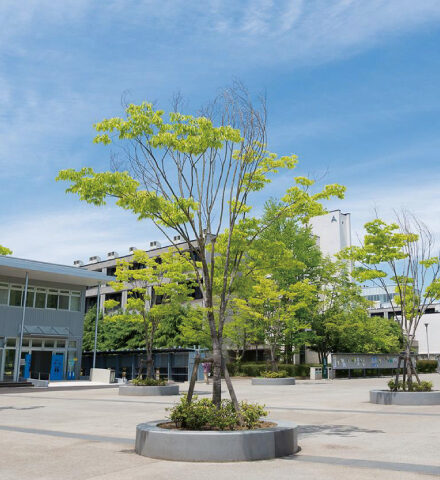Admission Policy
Admission Policy of the Graduate School of International Cultural Studies (GSICS)
The Tohoku University Graduate School of International Cultural Studies provides students with the ability to think and analyze in an international and interdisciplinary manner, advanced foreign language skills, and a high level of specialized knowledge and clear awareness of issues in the following three areas: (1) diverse regional cultures of Japan and other areas seen from an international perspective, (2) global issues concerning the environment, resources, and sustainable society in which all humankind can coexist, and (3) language underlying international society. Our educational goal is to train professionals, teachers, and researchers who can play an active role on a global scale with their rich education, international perspective, and high ideal of contributing to the stewardship and development of human civilization and culture. To achieve this goal, we seek students who have clear aspirations of becoming creative researchers or professionals and are active in the international community, equipped with flexible thinking skills, broad academic knowledge, and advanced language skills.
In admitting students, we have entrance examinations in the following categories: general selection, special selection for international applicants applying from overseas, selection for those advancing to the doctoral program from our MA program (only for the three-year doctoral program), entrance examination for the Global Governance and Sustainable Development Program, and entrance examination for the International Graduate Program in Language Sciences. These are used to select applicants who have the advanced abilities and qualities needed to conduct research in line with the educational ideals/goals mentioned above.
The two-year Master’s program
In the category of general selection, applicants are evaluated based on (1) their scores in a written test to evaluate their knowledge about their specialized fields and (2) an interview and a review of their application materials, which are to assess their motivation, research plans, and foreign language skills needed for research, among other things. These are given roughly equal weight.
In the category of special selection for international applicants applying from overseas, applicants who are recommended by their home universities are evaluated based on (1) a review of their application materials and (2) an interview. We assess their specialized knowledge, their ability to think logically and express their ideas in writing, and their motivation and research plans. These are given roughly equal weight.
In the entrance examination for the Global Governance and Sustainable Development Program, applicants are evaluated based on (1) a review of their application materials and (2) an interview. We examine whether they have the high-level English proficiency needed to study in the program where English is the medium of instruction, the academic motivation and thinking ability to tackle today’s social issues, and the ability to set a practical problem to solve. These are given roughly equal weight.
In the entrance examination for the International Graduate Program in Language Sciences, applicants are evaluated based on (1) a review of their application materials and (2) an interview. We examine whether they have the high-level English proficiency needed to study in the program (as English is the medium of instruction), and the specialized knowledge and ability to think interdisciplinarily required in the field of language sciences. These are given roughly equal weight.
We expect students to possess basic knowledge in their areas of expertise, basic foreign language skills, and skills in writing logically, before their enrollment.
The three-year doctoral program
In the category of general selection, applicants are evaluated based on (1) their MA theses, (2) their scores in a written test to assess whether they have the advanced knowledge in their specialized fields, and (3) an interview and a review of their application materials, which are to assess their motivation, research plan, and foreign language skills needed for research at a higher level, among other things. These are given roughly equal weight.
In the category of special selection for international applicants applying from overseas, applicants who are recommended by their home universities are evaluated based on (1) a review of their application materials and (2) an interview. We assess whether they have advanced knowledge in their specialized areas. We also examine their ability to conduct research, motivation, and research plan. These are given roughly equal weight.
In the category of selection for those who wish to advance to the doctoral program from our MA program, we assess whether applicants have advanced knowledge in their specialized areas and high-level foreign language skills needed for research, based on (1) their MA theses and (2) a review of their application materials and an interview. These are given roughly equal weight.
In the entrance examination for the Global Governance and Sustainable Development Program, applicants are evaluated based on (1) a review of their application materials and (2) an interview. We examine whether they have the high-level English proficiency needed to study in the program (as English is the medium of instruction), the ability to think critically about today’s social issues, and the ability to solve practical problems. These are given roughly equal weight.
In the entrance examination for the International Graduate Program in Language Sciences, applicants are evaluated based on (1) a review of their application materials and (2) an interview. We examine whether they have the high-level English proficiency needed to study in the program (as English is the medium of instruction), the advanced specialized knowledge necessary in the field of language sciences, the practical ability to conduct research, and the ability to perform interdisciplinary analyses. These are given roughly equal weight.
We expect students to possess broad knowledge in their areas of expertise, advanced foreign language skills, and ability to conduct creative research, before their enrollment.



